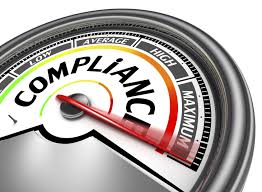Catching Up with Two Recent Compliance Studies: LRN and Ethisphere

With the growth of the compliance profession and the importance of compliance functions as part of corporate governance, there has been a significant increase in the quantity and quality of compliance studies and surveys. It takes time to keep up with all the compliance information being developed and released.
Here is a quick summary with links to some important new publications in this area:
LRN’s 2019 Program Effectiveness Report (Here): LRN’s annual report is a terrific resource for compliance practitioners, filled with excellent insights. LRN’s research and studies have consistently demonstrated the importance of ethical leadership and culture to overall company performance. In particular, LRN has demonstrated that values-based organizations produce better financial results than competitors with different cultures. Additionally, values-based organizations maintain greater innovation, stronger customer satisfaction, higher levels of employee engagement and reduced levels of misconduct and higher reporting rates. Further, LRN that its research “demonstrates conclusively that ‘operationalizing’ E&C in every phase of business decision-making enables leaders and employees to think and act based on shared values rather than on short-term expediency or minimum legal requirements.”
In this year’s PE report, LRN listed some interesting findings surrounding best practices and trends:
- Ethical behavior is increasingly a major factor in employee reviews and compensation, with 28% more respondents saying it mattered in performance reviews in 2019 versus
- 2018, and almost three times more saying it figured prominently in bonus allocations year over year.
- High-impact programs focused their training on encouraging ethical behavior, not just adhering to regulations, by a wide margin over others.
- Boards of these organizations were significantly more likely to hold senior leaders accountable for their behavior.
- High-impact programs were three times more likely to have codes of conduct that emphasize achieving business goals consistent with organizational values.
- These programs were also almost two times more likely to base their policies on risk assessment.
- The use of data analytics by all programs surveyed increased by 30% from 2018 to 2019.
- The number of respondents using cultural diagnostics to evaluate their programs nearly doubled from 2018 to 2019.

Ethisphere Leading Practices and Trends from 2019 World’s Most Ethical Companies (Here): Ethisphere designates companies as an ethical company under its self-designed standards. Ethisphere then surveys the recipients to identify important trends and best practices implemented by its honorees.
As an initial matter, Ethisphere compares the stock performance of its World’s Most Ethical Companies (WMEC) and compares it to the market average. Since 2006, when Ethisphere began the process, the WMEC companies outperformed the U.S. Large Cap Index by more than 10 percent over the last three years, and by almost 15 percent over the last five years.
Aside from this calculation of the Ethics Premium, Ethisphere’s report identified the following best practices in the areas of Transparency of Reporting, Governance and Written Standards. A brief review of the key findings is set forth below:
Detection and Monitoring with Transparency: Employee survey data commonly reveals mixed perceptions of accountability, that is, whether the company will fully investigate reported concerns and whether the rules are consistently enforced. WMEC companies demonstrated an increase in disclosure of information about the number, types and outcomes of investigations.
A large percentage of WMEC companies (84 percent) provide executive/closed-door sessions between ethics and compliance program owners and members of the board of directors (e.g. Audit Committee). Nearly half hold such a session each quarter.
Almost every responding WMEC (91 percent) noted that they communicate real-life events that occurred in their respective companies as examples of ethical and misconduct issues that occur in the real world.

Diversity: Among the 2019 WMEC companies, women hold over a quarter (28.1 percent) of the director positions, as opposed to 25.1 percent for Fortune 500 companies and 15 percent found in a recent Deloitte study of Women in the Boardroom (here).
WMEC companies have a larger percentage of women in company leadership, 25 percent, in contrast to the number of CEO positions held by women (5 percent) and 16.5 percent of non-CEO executive roles in the Standard and Poor’s 500.
Written Standards: A review of the WMEC Codes of Conduct revealed that Codes have moved from magazine-style presentations to digital media, including interactive learning aids and interactive navigation. Codes are often reduced in size and more streamlined in presentation.















